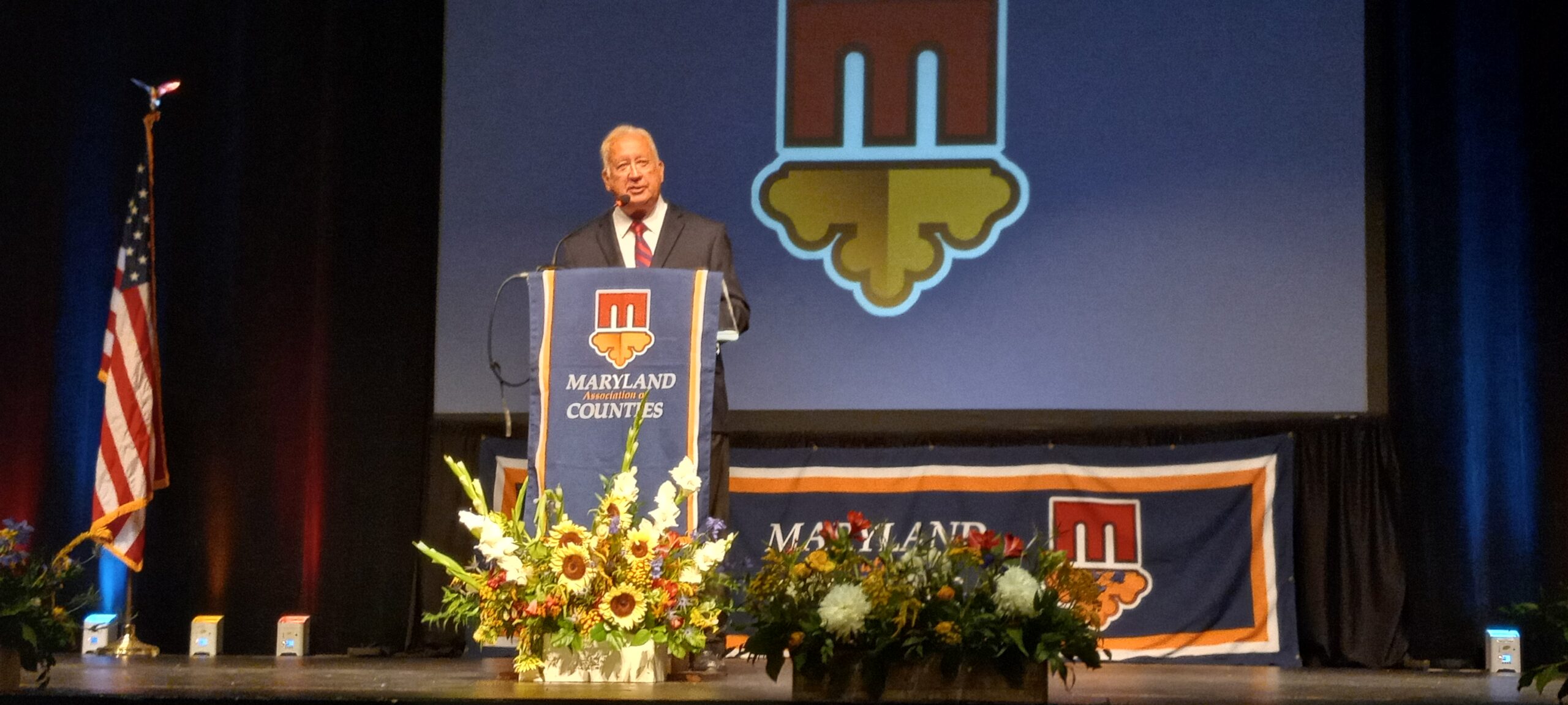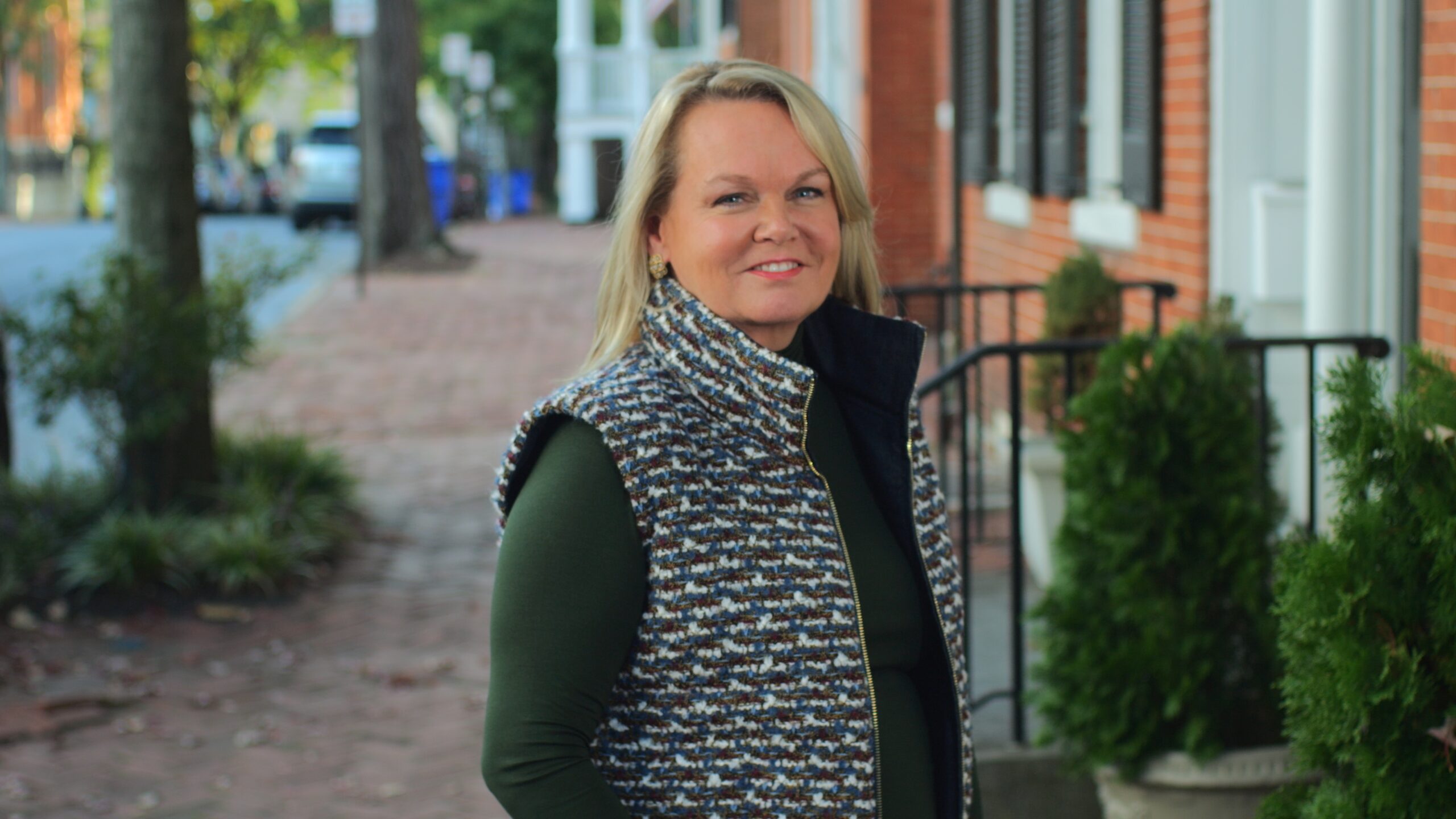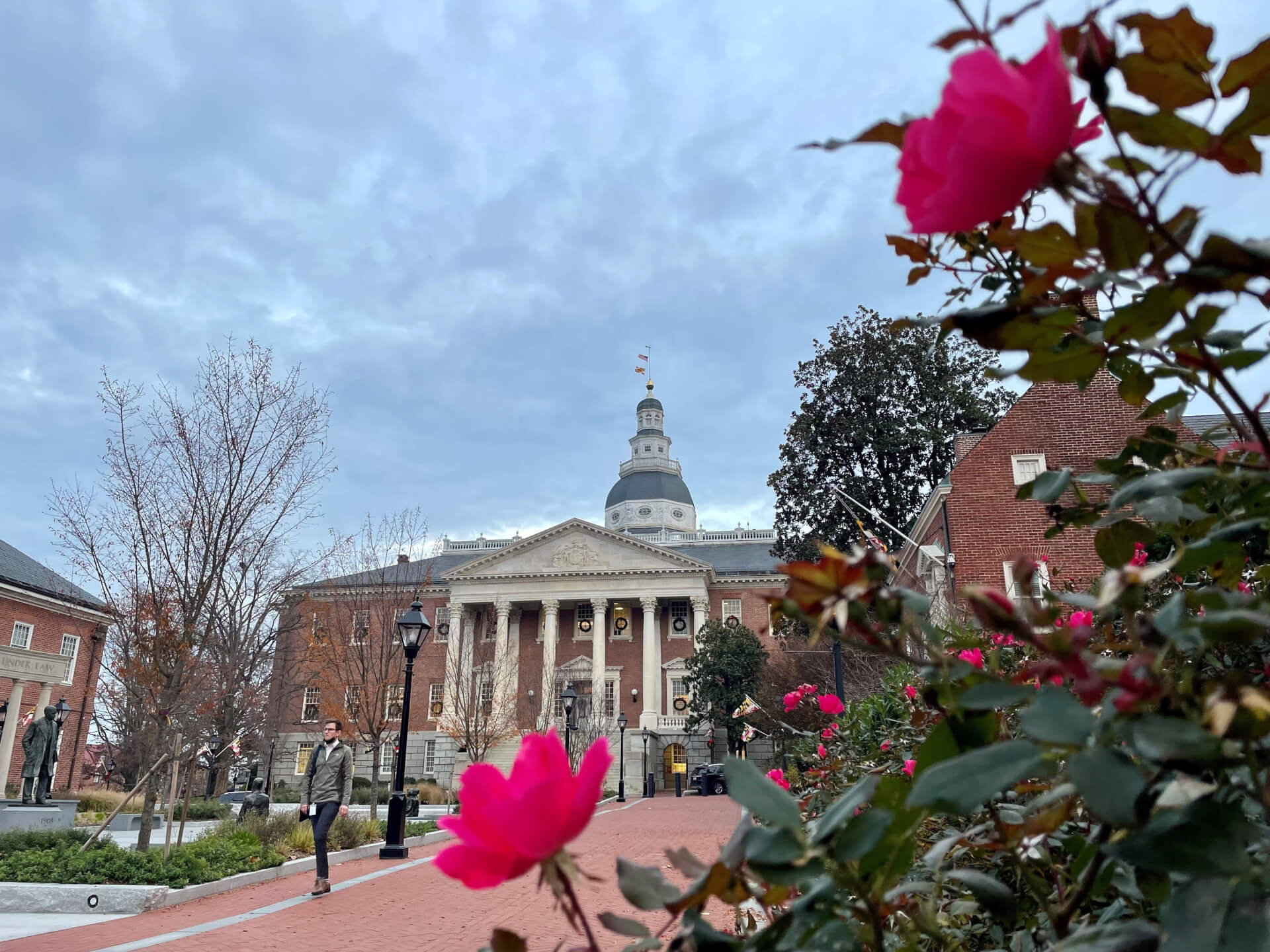Statewide candidates pledge cooperation with local officials at MACo finale

The most heavily attended Maryland Association of Counties summer conference in history concluded Saturday with presentations from five of the six major-party candidates for statewide office.
The contenders for governor, attorney general and comptroller did not appear onstage together, but offered opening and closing statements and answered three questions apiece that had been developed by MACo leaders. Wes Moore, the Democratic nominee for governor who attended numerous MACo events in Ocean City this week, was the only no-show, due to a scheduling conflict.
All three major offices are open this year — a rarity in recent Maryland political history — and all the candidates, to one degree or another, pledged to boost cooperation between state and local government. But the contrast in style and priorities was greatest between the nominees for attorney general, U.S. Rep. Anthony Brown (D) and former Anne Arundel County Councilmember Michael Anthony Peroutka (R).
Brown came out with a cordless microphone, enabling him to move about the stage like a relaxed TV show host. Speaking next, Peroutka remained behind a podium, though he occasionally pulled out small copies of the U.S. and Maryland constitutions for dramatic effect.
Peroutka, a one-time presidential nominee of the U.S. Constitution Party who has been associated with right-wing extremist groups, gave fairly straightforward answers when asked about the Office of Attorney General’s role and its relationship with local governments, its ability to provide legal opinions, and the way it implements big financial settlements from the opioid industry. But he used his opening and closing statements to thunder against the state and local public health mandates that were imposed during the early stages of the COVID-19 pandemic.
“None of those mandates, proclamations and lockdowns we lived under are lawful under the Maryland Constitution,” Peroutka asserted.
Later, he said, “There is no COVID-19 exception to the Bill of Rights. Even if you liked the science [behind the pandemic restrictions] — and I didn’t much like the science — it’s still unlawful.”
At one point, Peroutka said “an armed citizenry” would help combat government infractions on constitutional rights, but he quickly corrected himself to say “an informed citizenry.”
And when asked about how the state should work with local governments to finalize its lucrative financial settlements with the opioid industry, Peroutka said that while the state Attorney General’s office should be using its police powers to prevent opioid companies from addicting Marylanders, he had some concerns about the final arrangements with the pharmaceutical companies.
“I worry about these settlement agreements and the overall effect that they have,” he said. When states like Maryland reached financial settlements with the tobacco industry in the late 1990’s, “the state and the tobacco companies really became partners,” he continued. “Rather than trying to eliminate the evil, the state came to embrace the evil because there was money in it for both sides.
“That’s what fascism actually is — the joining of the government and corporations.”
Brown, by contrast, talked about his long record of public service — in the military, in the House of Delegates, as lieutenant governor and in Congress — and pledged to work closely with county leaders. He said he wanted to be “an advocate for progress” on issues like climate change, gun safety and police reform, and said, “I’m running for attorney general to partner with you to dismantle…barriers to make government work — state government, local government — to give Marylanders the government they deserve.”
Brown said he was committed to helping local governments implement state mandates that police departments maintain body camera footage, a controversial measure in some jurisdictions.
“I think it engenders greater trust between police and the community,” he said. “I think when you have that trust, the result is safer communities.”
And while Brown vowed to uphold immigrants’ rights, LGBTQ rights and “women’s reproductive freedom,” he said he did not intend to run an ideologically focused office.
“Marylanders have always rejected extreme government — extreme to the left, extreme to the right,” he said. “As public officials, it’s our responsibilities to find that common ground in the name of pubic interest.”
Cox
There was some speculation among the MACo officials about whether Del. Dan Cox (R-Frederick), the GOP nominee for governor who has run an unorthodox, low-budget campaign, would turn up for the forum, but he said he felt it was important to be there, even though “I could be with my wife and kids on this beautiful Saturday.”
Cox repeatedly reminded the audience that he is “the experienced elected official on the [gubernatorial] ballot. There’s no other elected official on the ballot.”
“I have a clear record of working with the people and standing up to both parties,” he added. “I will be your independent voice.”
As he has since winning the July 19 Republican primary, Cox tried to draw links between Moore and President Biden, suggesting the Democratic nominee would stymie economic growth because he “stands with the Biden new taxes on your local businesses” — though he stopped short of calling Moore a socialist, as he has on recent occasions.
Cox used a question on how as governor he planned to work with local officials to respond to natural disasters to criticize state pandemic mandates that impacted businesses, schools and religious worship.
“I have supported the governor time and time again, but one of the worst things he ever did was his abuse of emergency powers,” he said. But he added that he has already met with officials at the Maryland Department of Emergency Management and pledged “to make sure local governments have a seat at the table” to prepare for and respond to unanticipated disasters.
“I’m here because our freedoms matter, our children matter, our careers mater, and our public safety matters,” he said.
Comptroller candidates
Although they have different backgrounds, ideologies and priorities, the two nominees for comptroller, Harford County Executive Barry Glassman (R) and state Del. Brooke Lierman (D-Baltimore City), clearly demonstrated an understanding of the agency they seek to lead and its role in state government.
Both suggested the comptroller’s office could do a better job of communicating with county governments — whether it’s sharing information on tax policy and revenue estimates or spotlighting impactful matters coming before the Board of Public Works, where the comptroller has one of three votes.
“Being comptroller is not a partisan position, but it’s a partnership position, right?” Lierman said.
Lierman noted that she sponsored legislation two years ago to make Bureau of Revenue Estimates economic forecasts and other data more readily available to local leaders and the general public public, and that the fruits of those labors have only recently been implemented with updates on the comptroller’s website. She also argued that as the state’s chief financial officer, the comptroller has an integral role to play in how the state pursues, receives and spends all the federal largesse that’s expected over the next few years — the most coming Maryland’s way “since the New Deal.”
“I am running for comptroller really to work with you, to help Maryland rise to meet the moment,” she said. “…This election is not about the next four years but about the next 40.”
Glassman sought to highlight his bipartisan bonafides and his long history with MACo — including a stint as the organization’s president in 2019. He first joined MACo as a member of the Harford County Council in 1990.
“It made me a better state legislator and it probably ought to be a prerequisite of running for state office to serve in local government,” Glassman said.
If elected, he added, he’d be the second former MACo president to serve as comptroller. The first was William Donald Schaefer (D), who led MACo as mayor of Baltimore in 1980 — “the year I graduated high school, so I remember it.”




 Creative Commons Attribution
Creative Commons Attribution